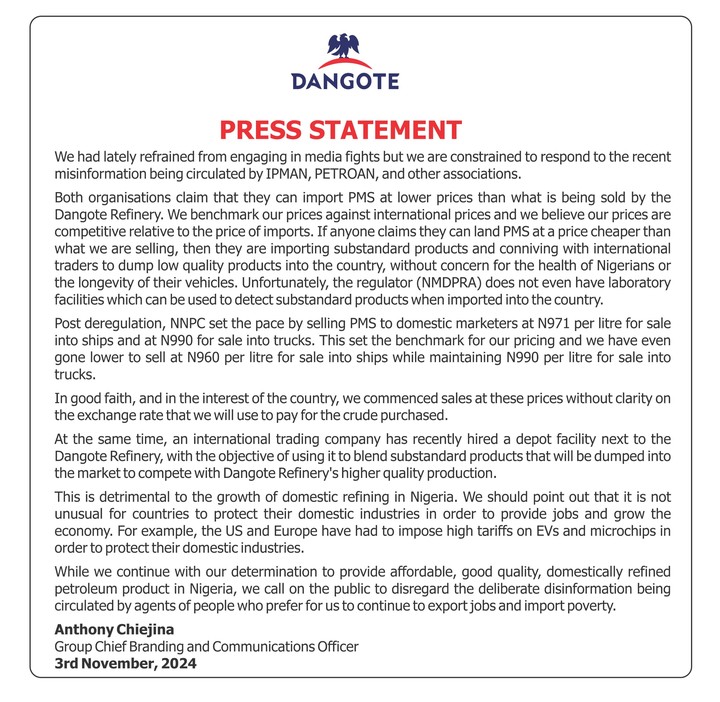In Nigeria, producing fuel locally is a promising development. However, setting high prices for this fuel is making life harder for many Nigerians. Even though these prices are meant to align with global standards, they don’t consider the financial challenges that ordinary people in Nigeria face. With the country’s oil resources, there’s an opportunity to keep fuel affordable and relieve some of the economic pressures that people experience daily. Here’s why high fuel costs are problematic for Nigerians:
Tying Nigeria’s fuel price to international rates doesn’t match the country’s economic realities. Nigeria has abundant oil resources, and it should be able to offer affordable fuel to its people. Since most Nigerians earn far less than people in other countries, many can’t afford fuel at global prices. When fuel costs remain high, more Nigerians will struggle financially, which could widen income inequality and slow down the economy.
Fuel is a key part of almost every area of Nigeria’s economy, from transportation and agriculture to manufacturing. When fuel prices rise, the cost of transportation and goods increases too. This puts extra pressure on low- and middle-income Nigerians, who are already coping with a high cost of living. High fuel prices risk damaging the economy and making daily life even harder for many people.
Some people argue that expensive fuel guarantees high quality. However, quality issues could be managed with better regulation rather than high prices. Instead of using quality as a reason for inflated costs, Nigeria could invest in testing and monitoring fuel quality. This would keep fuel affordable while ensuring it meets safety standards.
Countries like the U.S. and Europe sometimes protect their industries with tariffs, but Nigeria’s situation is different. Fuel is a basic need in Nigeria, and the country’s refining industry is not yet developed enough to compete at high prices. Comparing Nigeria’s pricing to wealthier nations overlooks how essential affordable fuel is to Nigerians’ everyday lives and the economy.
Fuel is crucial for daily life in Nigeria. Everyone depends on it, from small businesses to public transportation. When fuel is expensive, it limits access, especially for low-income households. By keeping fuel affordable, Nigeria would help all citizens access what they need to support their daily lives.
Nigeria has a chance to use its resources for the well-being of its people. By keeping locally refined fuel affordable, the country can reduce its reliance on imports, boost local industries, and support Nigerian families. Domestic production should aim to provide high-quality fuel at prices that people can afford, benefiting the entire economy.
In conclusion, while refineries need revenue, there must be a balance to keep fuel accessible for Nigerians. High prices shouldn’t place an extra burden on the public, especially when locally refined fuel can be both high-quality and affordable. Putting people’s needs and Nigeria’s economic reality first should be the priority, finding solutions that support Nigerians’ livelihoods and the nation’s growth.








